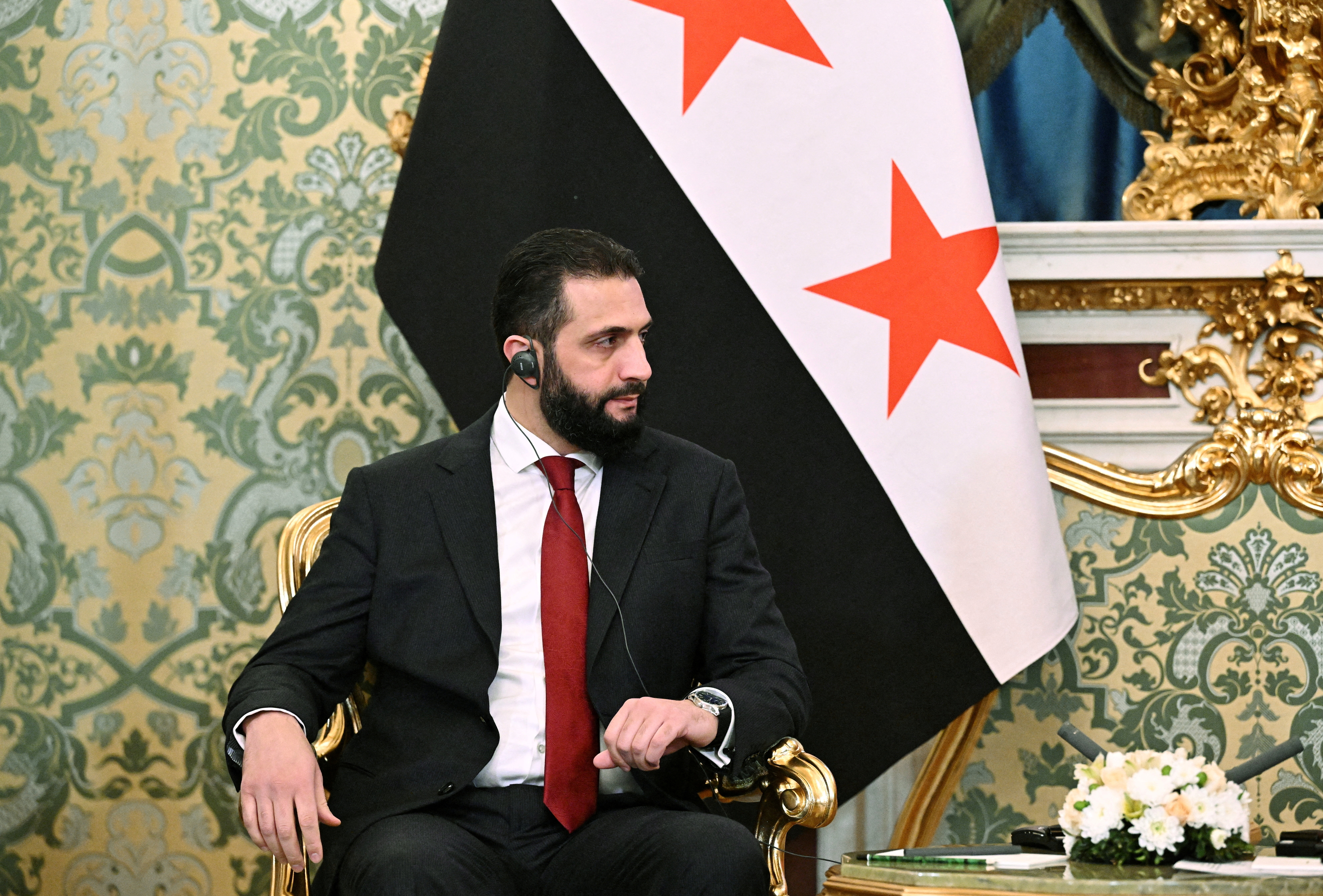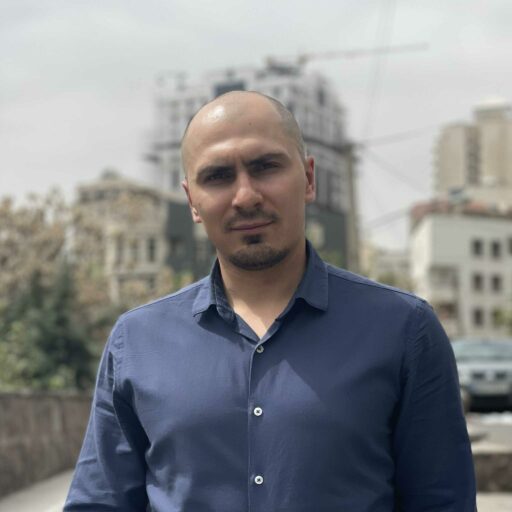The Syrian president’s visit to Washington on November 9 underscored a stark reality: the emerging shift in Moscow-Damascus relations makes it impossible for Russia to effortlessly reclaim the dominant position it once enjoyed in the country. The era of Bashar al-Assad, when Moscow was the regime’s indispensable ally, is irrevocably over. From now on, the Kremlin will have to operate in Syria amid fierce competition from both regional and global players.
The Battle for Syria
Ahmed al-Sharaa’s trip to Washington was historic on several counts: it marked the first visit by a Syrian head of state to the U.S. capital since 1946 and the first meeting between an American president and a man on whose head Washington had once placed a $ 10 million bounty.
The tangible outcomes of the talks, however, were modest. U.S. sanctions on Damascus have been suspended for 180 days, and Syria has been allowed to reopen its embassy in Washington. Full repeal of the Caesar Act sanctions — a key objective of the visit — remains entirely in the hands of Congress, which shows no appetite for a final decision any time soon. The bigger question — whether Donald Trump can persuade Syria’s Islamists to normalize relations with Israel in the near term — has so far elicited a clear negative. During the visit, al-Sharaa stated plainly that Damascus is not yet ready for direct talks with the Jewish state.
Yet some of the rhetoric was striking. The Syrian leader declared that Damascus is now an ally of the United States, and reports emerged suggesting Washington is preparing to station troops at an air base in the capital. In theory, such a U.S. presence could shield the Syrian government from Israeli strikes or at least guarantee the capital’s security.
Against this backdrop, it was only natural to wonder whether these developments would deal a serious blow to Russia, which is keen to preserve its military footprint in the country. Barely a month earlier, al-Sharaa had visited Moscow in what appeared to signal a renewed rapprochement. Are the Americans now about to elbow Russia aside and derail its plans?
So far, al-Sharaa’s actions point less to a definitive choice than to a pragmatic hedging strategy: he is courting every actor who might prove useful at the present stage. That explains why he accepts assistance from the Gulf Arab monarchies, maintains an alliance with Turkey, engages European diplomats, and tours world capitals. Between Moscow and Washington, he would evidently prefer not to choose at all, keeping channels open to both powers.
In this environment, Russia’s position is far from hopeless — indeed, it has noticeably strengthened in recent months. Immediately after Assad’s fall, the new Syrian authorities tried to squeeze Moscow out on every front. Since mid-summer, however, the trend has reversed, and a cautious normalization with the Kremlin has begun. The Washington visit serves mainly as a reminder that the days when Russia enjoyed exclusive rights over Syria, as it did under Assad, are gone for good. Henceforth the Kremlin will have to compete with other players — and al-Sharaa himself is doing everything he can to stoke that rivalry and extract the best possible terms.
What Russia Can Still Offer
Even in a genuinely competitive landscape, Moscow retains assets that Damascus values.
First and foremost, Russia remains a permanent member of the UN Security Council with veto power — a fact well understood in Damascus. Right after returning from Washington, al-Sharaa publicly stated that Syria needs Kremlin support in the Security Council «on certain issues». The world saw how this works in early November, when the Council voted to lift UN sanctions on al-Sharaa himself. The draft resolution was tabled by the United States, but Russia voted in favor.
Moscow also remains a critical player in regional food security — a particularly acute concern for Damascus. In Assad’s final years, Syria produced roughly 2 million tons of wheat annually against domestic consumption of at least 4 million tons; the 2-million-tonne shortfall was covered almost entirely by Russia. After the Islamists took power, Moscow halted grain exports, and domestic production plummeted further amid the chaos. Syria now needs to import no less than 2.55 million tons a year. Damascus is trying to replace Russian supplies with grain from Romania, Bulgaria, and even Ukraine, but those sources are limited: at best, Syria will receive around 600,000 tons from them by year-end. Food security and the prevention of famine are therefore becoming ever more pressing for the new leadership.
The situation is complicated by Syria’s accumulated debt for past Russian wheat deliveries. One major Russian exporter, STG Engineering, puts the outstanding bill at $ 116 million — a debt the new authorities have made clear they do not intend to honor, regarding it as a legacy of the Assad regime. In other words, for deliveries to resume, Moscow will effectively have to write off the debt and start with a clean slate.
All signs suggest the Kremlin is prepared to do so. In April, as a «goodwill gesture», Russia shipped 6,600 tons of wheat to Syria — a one-off symbolic move. For sustained cooperation, Damascus must guarantee payment, either through Gulf sponsors willing to foot the bill or by offering Moscow significant concessions elsewhere, such as access for Russian companies to Syria’s oil fields.
A similar dynamic is at play in the petroleum sector. Syria is in the grip of an acute fuel crisis, and in October Russia sent a tanker carrying 750,000 barrels of oil and gas condensate. Yet Moscow no longer enjoys the near-monopoly it once had in grain: Saudi Arabia has already begun oil deliveries, and Gulf states are exploring the restoration of Syria’s oil and gas industry.
Prospects for major new Russian arms sales look dimmer still, even though al-Sharaa raised the issue during his Moscow visit. Russia’s defense industry remains overwhelmed by domestic orders stemming from the Ukraine conflict — not coincidentally, Russian arms exports to the Middle East and North Africa have fallen 83 per cent since 2020. Moreover, Damascus would struggle to finance large weapons purchases: wheat imports can be framed as humanitarian, but arms deals cannot, and the West would almost certainly object. Limited agreements on maintenance and repair of inherited Assad-era equipment remain conceivable, but big-ticket contracts seem off the table for now.
For the moment, therefore, Syria will have to make do with modest military assistance from Turkey. Ankara cannot supply combat aircraft or modern air-defense systems (it imports those itself), but it can certainly provide armored vehicles, drones, and small arms.
There is, however, one security-related avenue where Russia-Syria cooperation appears to be expanding: a possible increase in Russian military presence in the south of the country as a deterrent against Israel. Initial steps seem already underway. Shortly after Russian Deputy Defence Minister Yunus-Bek Yevkurov visited Damascus in mid-November, a Russian military delegation travelled to Syria’s southern provinces. The calculus is straightforward: the presence of Russian forces would sharply curtail the Israel Defense Forces’ freedom of action on Syrian soil.
Notably, Israel itself appears relaxed about a continued Russian military footprint. As early as January, Reuters reported that Israel was lobbying Washington for a scenario in which Syria remains weak and decentralized — and one of Jerusalem’s conditions was the retention of Russian forces as a counterweight to growing Turkish influence. Naturally, no one is talking about a return to the Assad-era scale, when dozens of Russian military facilities were scattered across the country.
An Auxiliary Partner
In his first year in power, Ahmed al-Sharaa has proven himself to be a pragmatic leader and skillful diplomat. One could argue that Syria has never enjoyed such broad international recognition in its modern history: it is now welcomed in the West, across the Middle East, and in Russia alike. Domestically the picture is less rosy — the economy is in deep crisis and clashes between government forces and various minorities flare up periodically — yet this has not prevented al-Sharaa from steadily expanding external support.
The new Syrian leadership’s adaptability is especially evident in its dealings with Russia: a limited but visible rapprochement is underway. For al-Sharaa, however, the Kremlin is not a strategic ally but a tool for solving specific problems. Damascus applies the same utilitarian lens to every other relationship. The result is an endless balancing act between global and regional centers of power — one that al-Sharaa has so far managed with remarkable success. As leading Russian experts on Syria note, no previous Syrian leader has ever maneuvered between Moscow and Washington with quite this degree of freedom.
In this pragmatic game, Moscow has been assigned the role of important but auxiliary partner. It can help restrain Israel and alleviate the food crisis. Moreover, warming ties with Russia can always be brandished as leverage against the West to extract extra concessions. As long as al-Sharaa preserves ample room for diplomatic maneuver, the Kremlin is condemned to a secondary role. It was Assad who depended entirely on Russia and Iran because he had no other options. The current Syrian leadership enjoys a wide and varied range of alternatives.
Russia’s ultra-patriotic commentariat has voiced muted discontent with the country’s diminished status in Syria, but the Kremlin itself appears ready for a pragmatic trade-off: preserving a military presence in exchange for supporting the stability of the new Islamist regime. The bases — above all Khmeimim — remain valuable chiefly as a logistical hub for Russian operations across Africa.
At the same time, the Syrian case has become an uncomfortable precedent for Moscow. It demonstrates that the United States and Europe are prepared to recognize and legitimize practically any opposition victory in countries previously treated as pariahs. If this pattern takes hold, the message to the populations of Iran, Russia, and Venezuela will be crystal clear: any change of power will be declared legitimate — even if it is carried out by figures the West yesterday branded terrorists and put large bounties on. Whoever seizes power, sanctions will be lifted and the country offered a path back into the international community.










